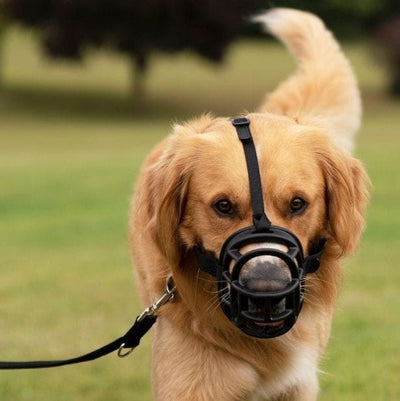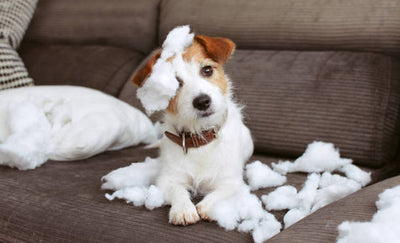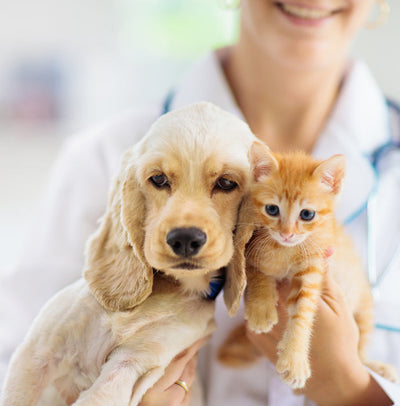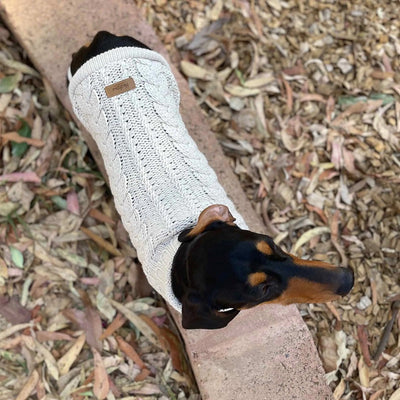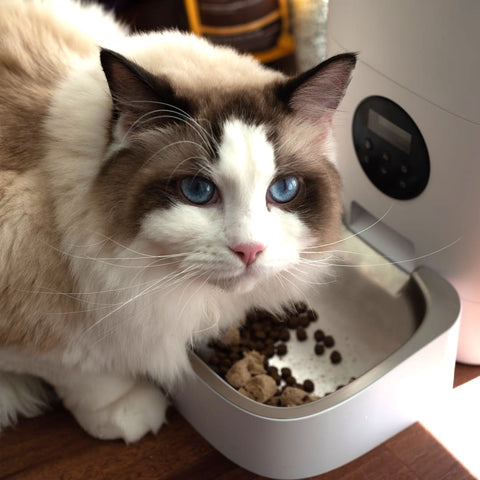
Have you ever noticed your cat's preferred shape and size when it comes to its food? It might seem like a trivial preference, but the shape and size of dry food can have an important effect on your cat's health and diet.
In this article, we explore a crucial yet often overlooked dimension of cat nutrition – the significance of size and shape in dry cat food. As devoted cat parents understanding the intricacies of our feline companions' dietary needs is paramount.
We will explore the facts about why the size and shape of dry cat food matter, shedding light on how these seemingly subtle details can play a pivotal role in promoting the health and happiness of our beloved feline friends. Whether you're a seasoned cat parent or a newcomer to the world of pet care, this exploration will provide valuable insights into improving your cat's diet for a helathier life.
Understand Cats’ Natural Eating Habits.
Cats are instinctively drawn to certain shapes and sizes of food. Dry food has a unique texture and crunch that cats love, and the smaller kibble size encourages them to eat with more precision. This is because small pieces of food mimic their natural prey, like rodents or birds, which they would normally hunt in the wild. Similarly, larger shaped foods can help satisfy cats’ natural urge to "hunt" when they eat.
Today our domes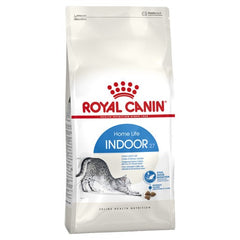 ticated moggies often live indoors and have regular meals served! It is important to feed them a food that suits their lifestyle such as indoor or active breed formula's.
ticated moggies often live indoors and have regular meals served! It is important to feed them a food that suits their lifestyle such as indoor or active breed formula's.
Breed specific varieties are also popular and can take the guesswork out of meeting the dietary needs of your cat.
What Affects Palatability of Cat Foods?
When it comes to dry food, cats have particular preferences when it comes to size and shape. This is because cats’ sense of taste is closely connected to their other senses such as sight, aroma, and texture. Cats are known to be especially sensitive to the acidity of food and they prefer shapes and sizes that they can pick up easily and comfortably with their mouths.
Awareness of food shapes that cats prefer.
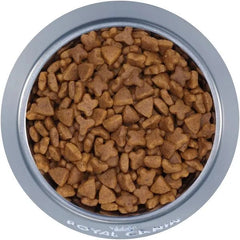
While cats can have their own preferences when it comes to food shape, most cats tend to go for narrow rectangles and triangles. Keep in mind that the shape of kibble needs to fit comfortably in a cat’s mouth and should be sized appropriately to encourage chewing. As well as ensuring an enjoyable mealtime experience, having these shapes included in a kibble can help them relate the kibble with the outdoors and the hunt.
Recognise the Role Particle Size Plays in Cat Dry Food.
Particle size can be a key factor when it comes to your cat's dietary preferences. Smaller kibble sizes encourage cats to eat with precision and can help stimulate their senses because they're mimicking a natural hunting experience. Larger shapes also fulfill the same purpose while providing necessary nutrition. Be sure to choose foods that have multiple shapes in order to appeal to your cat’s natural instinctive needs.
Learn how texture affects your cat's choice in dry food.
Cats are often attracted to foods with a crunchy and hard texture, as this can help them grind their food and clean their teeth.On the other hand, soft kibble with a moist or semi-moist consistency is ideal for senior cats who have difficulty chewing hard kibble. Soft kibble is also beneficial for cats who have dental issues or are missing teeth. It is easier to chew and digest, which can help prevent digestive upset. Additionally, soft kibble may be more palatable for cats who have lost their sense of smell due to age-related changes. Finally, senior cats may benefit from a diet that contains higher levels of protein and fat.
Not sure what type of cat food shape your cat will like?
Benefit from specialised nutrition for cats with dental issues and picky eaters.
Cats with dental issues or are particularly picky eaters can benefit from specially-formulated cat dry food. These foods are often softer and come in fun shapes that cats can easily chew, encouraging them to eat more. Specialised dental cat foods also contain beneficial ingredients like taurine, which is essential for feline health, but not found naturally in many foods.
With the right variety of kibble and soft bites, you can create a balanced diet and prevent finicky appetites that can lead to nutritional deficiencies or inadequate oral hygiene.
© weknowpets 2024


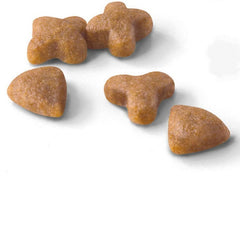 enhancing the palatability of cat food. A study conducted by AFB International in 2020 revealed that cats exhibited a stronger preference for cross/star-shaped and disc-shaped kibble in a palatability trial, as opposed to triangles, cylinders, and triangles with a center hole.
enhancing the palatability of cat food. A study conducted by AFB International in 2020 revealed that cats exhibited a stronger preference for cross/star-shaped and disc-shaped kibble in a palatability trial, as opposed to triangles, cylinders, and triangles with a center hole.